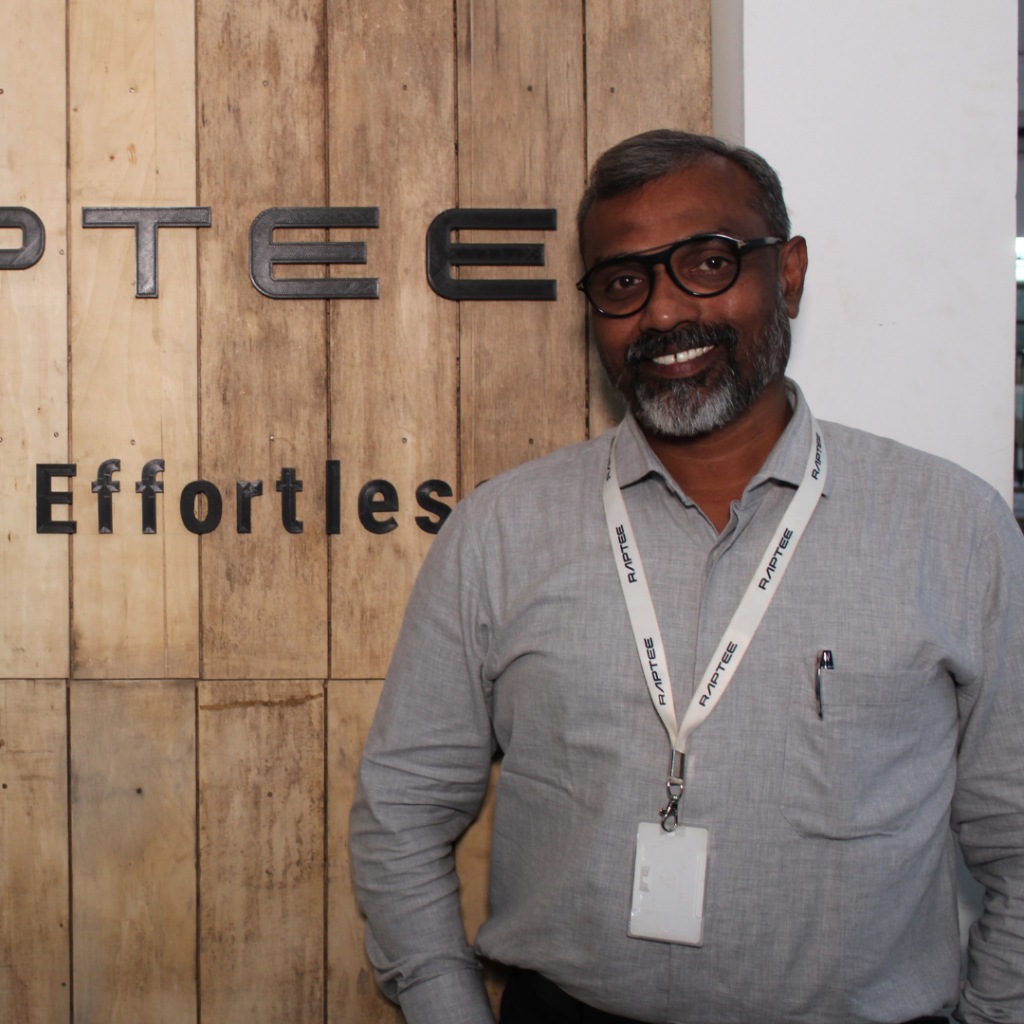-By Jayapradeep Vasudevan, Chief Business Officer,Raptee

The electric vehicle (EV) industry is rapidly growing and evolving, with new advancements and innovations being made every day. As more people prioritize sustainability and seek alternatives to traditional combustion engine vehicles, the demand for EVs continues to increase. However, the EV industry also faces various challenges, such as improving performance, extending range, and creating more sustainable battery packs.
Meeting customer Demands
As Consumers get spoilt for a choice, they are also more aware about their expectations from electric vehicles (EVs) in 2023. They want EVs to have long range, fast charging, affordability, performance, and the latest technology features. Specifically, consumers expect a range of at least 300 miles, the ability to charge from 10% to 80% in 30 minutes or less, a starting price of under 1 lakh, acceleration from 0 to 60 mph in under 6 seconds, standard ADAS features, an infotainment system with a large touchscreen display and Android Auto compatibility, with a premium sound system, connectivity features such as a Wi-Fi hotspot and remote access to vehicle features.
Competition from well established ICE brands
The electric vehicle (EV) game is like a high-stakes race where the new EV players are challenging the reigning champions (established ICE brands). It's a fascinating battle with both sides revving up their engines.
Established ICE brands, with decades of experience, a loyal customer base, and well-established production lines, have a competitive advantage. They've mastered the art of manufacturing and have a strong presence in the market. But here comes the twist—the EV players are changing the rules of the game.
One of the challenges for ICE brands is adapting to the electric shift. They need to invest heavily in research and development to catch up with the cutting-edge technology of EVs. The transition also involves restructuring their existing infrastructure, which can involve logistical challenges.
On the other hand, EV players have the advantage of starting fresh. They're not burdened by legacy systems and can build their brand around the sustainability and innovation associated with electric vehicles. However, they face their own hurdles, like establishing a robust charging infrastructure and overcoming the range anxiety that still haunts potential EV buyers.
It's a race where the finish line keeps moving as technology evolves. Ultimately, the winner might be the one who can adapt swiftly, innovate relentlessly, and capture the hearts of consumers.
Global Competition
The global landscape for electric vehicles (EVs) is marked by intense competition among manufacturers, each vying for a prominent position in this rapidly evolving market. Key players, spanning continents, are strategically positioning themselves to capitalize on the burgeoning demand for sustainable transportation solutions.
International partnerships and collaborations are becoming increasingly prevalent as manufacturers seek to leverage collective expertise and resources. These alliances not only facilitate technology exchange but also serve as a strategic maneuver to establish a global footprint and navigate the intricacies of diverse markets.
In essence, the competition in the global EV market is a multifaceted challenge that demands a holistic approach—from technological innovation to strategic partnerships and market positioning. Success hinges on the ability of manufacturers to navigate these complexities and deliver compelling, sustainable solutions to an increasingly discerning global consumer base.
Improving Supply Chain Collaboration
The electric vehicle (EV) supply chain faces several challenges that require strategic solutions to ensure smooth operations and sustained growth. One significant challenge is the scarcity of raw materials, particularly rare-earth metals used in EV batteries. This challenge is being addressed through diversification of sourcing strategies, exploration of alternative materials, and investments in recycling technologies to reduce dependence on newly mined resources.
Another critical issue is the lack of standardized components and production processes across the industry. This diversity hampers scalability and increases costs. Efforts are underway to establish industry standards and common platforms, fostering interoperability and allowing manufacturers to streamline their supply chains. Collaboration and knowledge-sharing initiatives among industry players play a crucial role in overcoming this challenge.
The global nature of the EV supply chain introduces complexities related to logistics, including transportation and infrastructure for components and finished products. To address this, manufacturers are investing in the development of efficient and sustainable transportation networks. Additionally, strategic partnerships with logistics providers and advancements in autonomous and electric vehicle technologies contribute to optimizing supply chain logistics.
Service options after Delivery
Recognizing the growing demand for electric vehicles (EVs) and the associated service requirements, manufacturers are taking proactive measures to address consumer concerns. Investments in comprehensive training and certification programs for EV technicians aim to ensure a sufficient pool of qualified professionals capable of meeting the evolving needs of consumers. Simultaneously, efforts to enhance the availability of EV parts contribute to reducing service wait times and overall affordability, marking a positive shift in the ownership experience.
Furthermore, increased transparency from EV manufacturers and dealerships regarding service costs and availability empowers consumers to better budget and plan for their EV maintenance needs. Collaborative initiatives between EV manufacturers and governments to expand the network of charging stations further alleviate concerns about accessibility, making it more convenient for EV owners to find suitable locations for charging. These concerted efforts reflect a commitment to enhancing the overall service ecosystem for EV consumers.
Addressing Charging issues
The Government of India has undertaken comprehensive initiatives to bolster public charging infrastructure, collaborating with both private and public entities such as BEE, EESL, PGCIL, and NTPC. In a concerted effort, private organizations have also stepped forward to install electric vehicle (EV) charging stations, contributing to the establishment of a convenient charging network grid that aims to instill confidence in consumers. The Ministry of Power envisions a charging station density within a 3×3 km grid, strategically planning the deployment of 419 operational Public Charging Stations (PCS) along national highways, as per data provided by BEE.
Allocating Rs. 1000 Cr. under phase-II of the FAME-India Scheme for charging infrastructure development, the Ministry has sanctioned 2,877 electric vehicle charging stations across 68 cities in 25 states and union territories. Additionally, 1576 charging stations are earmarked for deployment along 9 Expressways and 16 Highways as part of the same initiative. In a significant move, the Union Ministry for Power and New & Renewable Energy, Shri R. K. Singh, introduced the EV-Ready India Dashboard in New Delhi. This innovative digital platform, developed by the OMI Foundation, offers real-time insights into electric vehicle adoption, battery demand, charging density, and market growth trends, utilizing the power of data and AI. The dashboard is poised to foster inclusivity, catering to industry stakeholders, policymakers, and end-users in India's rapidly expanding electric mobility sector.
In conclusion, the future of the EV industry is not just about vehicles; it's a holistic transformation involving technology, partnerships, sustainability, and consumer experience. As the industry hurtles forward, the winners will be those who can adapt swiftly, innovate relentlessly, and capture the hearts of a discerning global consumer base. The road ahead is challenging, but it's paving the way for a greener, more sustainable automotive future.
 EVStory.in - India's best EV Portal
EVStory.in - India's best EV Portal